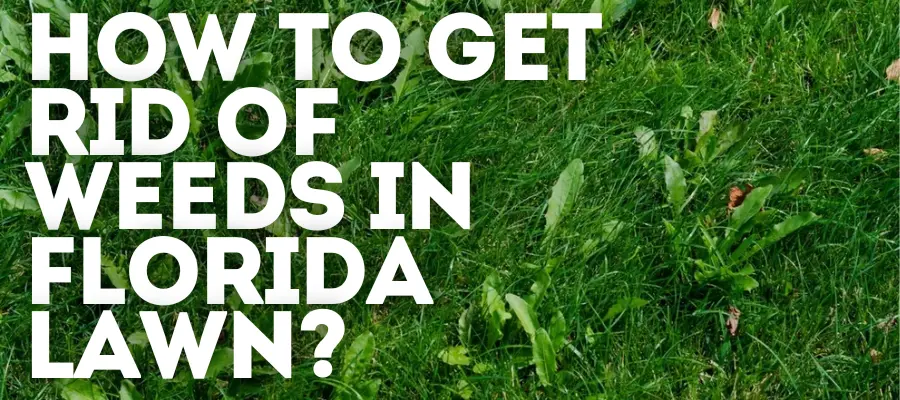Struggling with stubborn weeds overtaking your lawn in and flower beds in Florida? You’re not alone. Managing weeds in Florida’s unique climate can be challenging, but with the right strategies, you can fix your lawn and garden space and keep it looking pristine.
In this article, we’ll explore How to Get Rid of Lawn Weeds in Florida, including both chemical and natural solutions, and will provide practical tips tailored to Florida’s weather conditions.
Characteristics of Florida Weeds
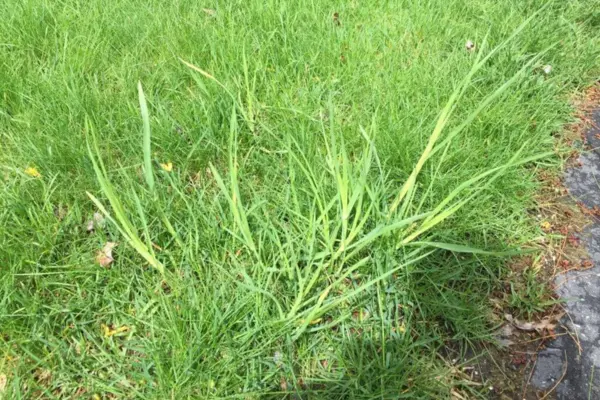
Florida’s climate is a paradise for weeds, offering the perfect conditions for them to thrive:
High Humidity: The constant moisture in the air supports rapid growth and favors perennial weeds, which thrive in environments with consistent hydration.
Warm Temperatures: Florida’s warm climate allows weeds to grow year-round, making it a continuous battle for homeowners to keep them at bay.
Frequent Rainfall: While beneficial for gardens, the frequent rains also encourage weeds, making regular monitoring and control essential.
Common Weeds and Control Methods
| Weed Type | Example | Control Method |
|---|---|---|
| Broadleaf Weeds | Dandelion | Hand-pull, 2,4-D herbicide |
| Grassy Weeds | Crabgrass | Pre-emergent herbicide, regular mowing |
| Sedges and Rushes | Nutsedge | Halosulfuron herbicide, improve soil drainage |
By understanding the characteristics and spread of weeds common in Florida, you can better prepare to combat them effectively.
Choosing the Right Time for Treatment
Timing is crucial when it comes to effective weed control. Here are some factors to consider:
Best Time of the Year
Spring: Applying pre-emergent herbicides in early spring can prevent weed seeds from germinating. This is particularly effective against annual weeds like crabgrass.
Fall: Late fall is a good time for targeting perennial weeds as they store nutrients in their roots, making them more susceptible to systemic herbicides.
Weather Carefulness
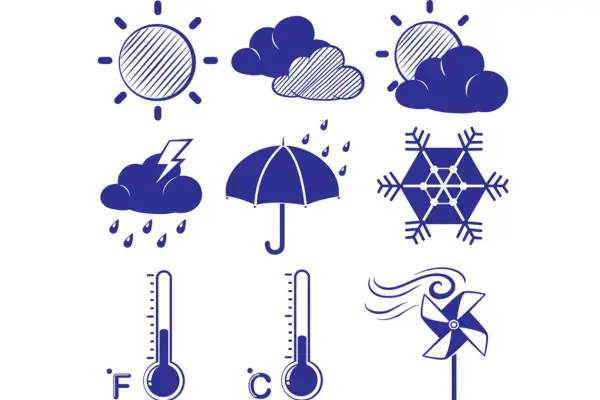
Avoid Windy Days: Herbicides can drift onto desirable plants if applied on windy days.
Optimal Temperature: Apply treatments during mild weather conditions, avoiding extreme heat or cold.
Rain-Free Days: Check the forecast to ensure at least 24 hours of dry weather after applying herbicides to allow the product to absorb into the plants.
understanding the best times for treatment, you can significantly improve your chances of effective weed control in Florida.
Effective Weed Removal Methods
Weed control requires a strategic approach, often combining chemical, manual, and natural methods. Below, we explore various effective techniques to help you get rid of weeds in your Florida lawn.
Chemical Treatments
Chemical treatments are a popular choice for weed control due to their efficiency and effectiveness. However, they should be used carefully to avoid damaging desirable plants.
Selecting the Right Herbicides
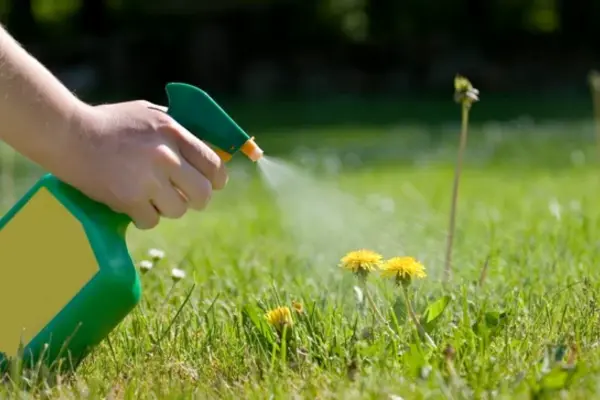
Choosing the right herbicide depends on the type of weeds you are dealing with and your specific lawn conditions.
Glyphosate-Based Products
Usage: Effective for killing a wide range of weeds, including grasses, sedges, and broadleaf weeds.
Example: Roundup is a well-known glyphosate product.
Precautions: Glyphosate is non-selective and will kill any plant it contacts. Use it carefully around desirable plants.
Pre-Emergent vs. Post-Emergent Herbicides
Pre-Emergent Herbicides: Prevent weed seeds from germinating. Ideal for annual weeds like crabgrass.
Post-Emergent Herbicides: Target weeds that have already emerged. Choose selective herbicides for specific weed types to avoid harming your lawn.
How to Use Herbicides Safely
Safety should be your priority when using chemical treatments. Follow these steps to ensure safe and effective application:
Mixing and Applying Herbicides
Read Labels Carefully: Follow the manufacturer’s instructions for mixing and application rates.
Proper Equipment: Use a quality sprayer, like the Smith Contractor Sprayer, for even coverage. Ensure you wear protective gear, including gloves and goggles.
Safety Precautions and Tips
Target Application: Apply herbicides only on targeted weeds to avoid harming desirable plants.
Environmental Considerations: Avoid applying near water bodies or during windy conditions to prevent runoff and drift.
Child and Pet Safety: Keep children and pets off the lawn until the herbicide has dried completely.
Non-Chemical Methods
For those preferring a more natural approach, non-chemical methods can be just as effective, though they may require more effort and consistency.
Hand-Pulling and Digging
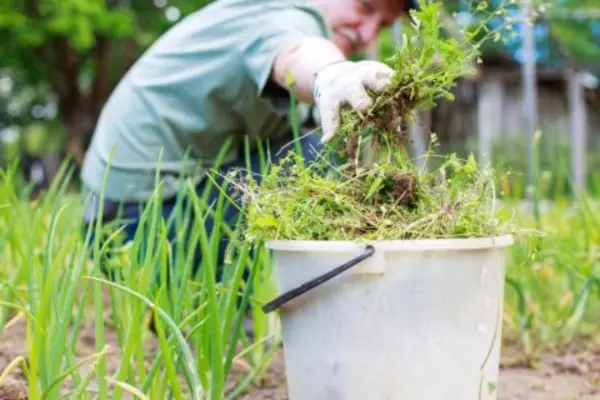
Hand-pulling is a straightforward method for small infestations. Here’s how to do it effectively:
Manual Removal Tips
Timing: Remove weeds when the soil is moist to make pulling easier and reduce root breakage.
Tools: Use tools like a dandelion digger or a hand trowel to assist in removing deep-rooted weeds.
When to Use This Method
Best for small areas or isolated weeds where chemical treatments aren’t practical.
Effective against weeds with shallow root systems that can be easily uprooted.
Natural Weed Control Options
Natural weed control methods are environmentally friendly and can be effective with consistent application.
Vinegar Solutions
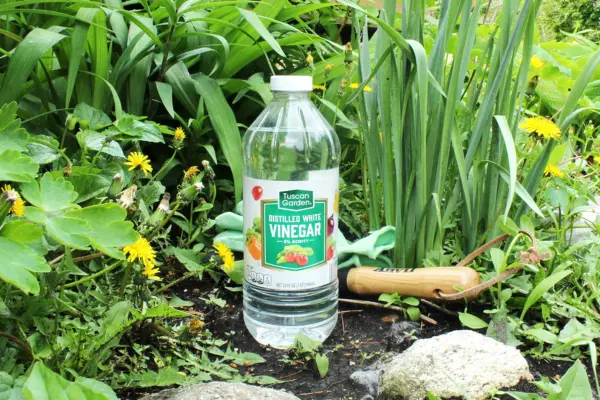
Usage: Apply white vinegar directly on the leaves of weeds. The acetic acid will dehydrate and kill them.
Considerations: It works best on sunny days when the heat can enhance the effect. Multiple applications may be necessary for persistent weeds.
Boiling Water
Usage: Pour boiling water directly onto the weeds. This method is effective for small patches and cracks in sidewalks or driveways.
Safety: Be cautious of splash-back and avoid areas where desirable plants are nearby.
Mulching and Landscape Fabrics
Application: Apply a thick layer of organic mulch, such as wood chips or straw, around plants to suppress weed growth. Landscape fabrics can also be laid down to block sunlight and prevent weeds.
Benefits: Mulching not only suppresses weeds but also retains soil moisture and adds organic matter to the soil as it breaks down.
By combining these chemical and non-chemical methods, you can effectively tackle weeds in your Florida lawn while considering safety, environmental impact, and lawn health.
Conclusion
Keeping your Florida lawn weed-free requires a combination of understanding the types of weeds you’re dealing with, using the right control methods, and implementing effective prevention strategies. Whether you prefer chemical treatments or natural solutions, maintaining a healthy lawn and garden through regular care is your best defense against persistent weeds.
By staying vigilant and proactive, you can enjoy a lush, beautiful lawn year-round, free from the intrusion of unwanted weeds. Remember, the key to success lies in consistent maintenance and being adaptable to your lawn’s unique needs.

